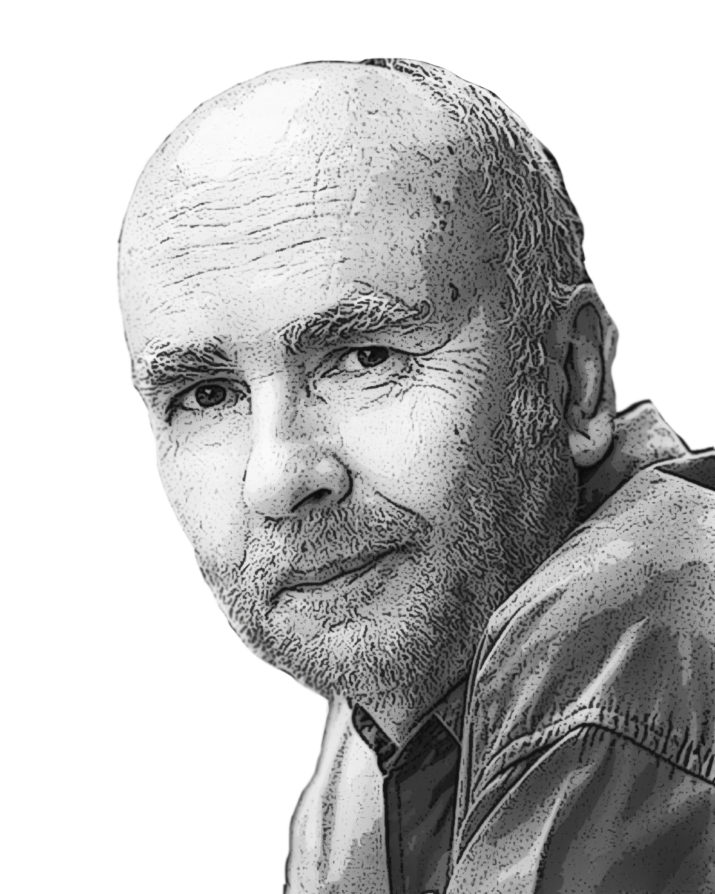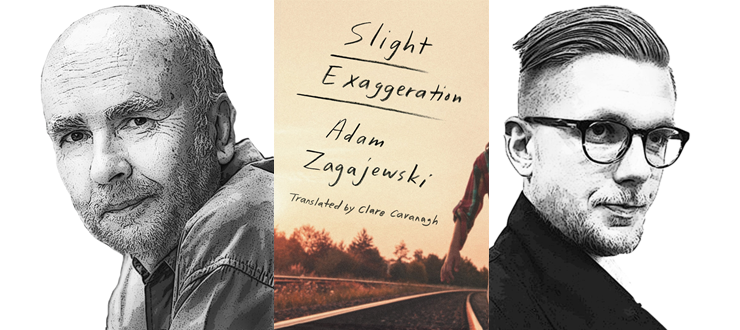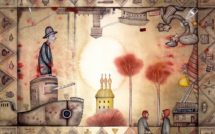

This is part of our feature on Poets and Power: Language of Resilience from Central and Eastern Europe
The poet Adam Zagajewski was born in something like the core — the nerve center — of the twentieth century. He was born, that is, in Poland in 1945 between six years of horrific Nazi occupation and four decades of ironfisted Soviet rule. This ambivalent historical inheritance is felt everywhere in his writing. “Too many elegies. Too much memory,” one of his poems begins. Another, “Letter From a Reader,” opens with a plea from an imaginative reader: “Too much about death, / too many shadows. Write about life, / an average day, / the yearning for order.” Indeed, many of Zagajewski’s poems strive to rescue moments of apparent insignificance from the weight of history. “Don’t Allow the Lucid Moment to Dissolve,” the title of one of the poems collected in 2002’s Without End: New and Selected Poems, might fittingly be applied to the larger project of writing.
At seventy-two, Zagajewski (which he charmingly pronounces Z’gah-yeffski) is among the world’s most celebrated poets. He won the 2004 Neustadt International Prize for Literature and the 2016 Griffin Poetry Prize Lifetime Recognition Award, and was lauded by Derek Walcott as “the quiet voice at the corner of the immense devastations of an obscene century.” He taught for many years at the University of Houston and the University of Chicago. Recently, he gave a reading at Columbia University alongside his former editor at The New Yorker, Alice Quinn, who published his celebrated poem “Try to Praise the Mutilated World” in the first edition of the magazine to appear after the September 11th attacks in 2001. This spring, FSG will publish his book-length essay Slight Exaggeration, in a translation by Clare Cavanagh.
A few days after his Columbia reading, I caught up with Adam Zagajewski in the West Village to discuss recent developments in the United States and Europe, as well as the role of the poet in a time of political unrest.
—Morten Høi Jensen for EuropeNow
EuropeNow You taught in Houston for eighteen years and for seven years in Chicago. Since 1988, you’ve lived through quite a number of administrations here in the United States. Did you see Donald Trump’s presidency coming?
Adam Zagajewski No, I was totally shocked. I never imagined it would be possible. I always saw the US as a liberal country, as a place for all kinds of ideas and ways of life. This ideological government is a total surprise to me, and a very unpleasant one.
EuropeNow There are obviously many similarities between what’s going on here and what’s going in Europe, especially in Poland. Do you see a connection? Are we witnessing a resurgence of nationalist populism?
Adam Zagajewski To some extent, yes. But I still hope. We never know the future. It’s very hard to say now how the next two, three, four years will be shaped. Because it could be that this is just an episode. But it’s amazing that in so many countries there are signs of rebellion, anti-liberal rebellion. You see people rebelling against economic liberalism but also against philosophical liberalism, which allows for a lot of people with different ideas to exist in the same territory. So, yes, it is international, but I don’t have any conspiracy theories about it to entertain. That’s something I leave to the other side.
EuropeNow I think you’re right that we’re seeing a rebellion against not just economic liberalism but also philosophical liberalism, which is really the philosophy of pluralism.
Adam Zagajewski Exactly. I have my way of living and you have your way of living. So long as they don’t impinge on each other, it’s fine. But now you have this bigotry, the bigotry of one way of life. It’s very aggressive.
EuropeNow You’ve written about homelessness, about being a refugee. The sensation of rootlessness, I think, is very much a part of philosophical liberalism. In your essay “Two Cities” you describe growing up around people who felt they did not truly have a home. Do you see some of the mistakes of the past being repeated in the attitudes toward refugees today?
Adam Zagajewski Yeah, I’m always afraid that lessons of the past will be unlearned. There’s no continuity in human history. We have these great libraries, great memories of civilization, but then a new generation comes along which has no time for libraries, for wisdom, for the transmission of ideas. So we simply repeat the same mistakes without even being conscious of it. The continuity of enlightenment is always under threat, in that sense.
EuropeNow After the Brexit vote and after the US election I found myself reading a lot of poetry, partly, I think, because the language of the Trump administration is so debased, is so poor. It was a relief to turn away from it toward a place where language is so focused and crystalized. I wonder how you respond to these political developments as a poet?
Adam Zagajewski Well, I don’t have one single response to these events. The larger polemical response belongs, I think, to the younger generation. When I was young I was very polemical against the Communist government and I’m too old now to enter again into this sphere of rebellion. So there’s never just one way of responding. It’s a question of temperament, too. There will always be people who have no interest in public things, whereas other writers will be passionately interested in it. What one ought to avoid are the two extremes: on the one hand the totally academic, nonchalant ignorance about what’s going on, to carry on as if nothing is happening, and then on the other to burn in the desire of political protest. Which leaves a middle course that I think is better for your sanity.
EuropeNow You feel it’s important to remember that politics doesn’t encompass all of life?
Adam Zagajewski Yes, exactly. But it is an important part of life. You can’t escape it, nor should you. But in a way it’s a success of these populist movements to have reduced our lives to political dimensions.
EuropeNow Right, and I suppose that’s the totalitarian achievement: politics ends up following you into the bedroom, into the bathroom.
Adam Zagajewski Yes, Communism was like that.
EuropeNow How involved were you when you were younger? You said before that you were very polemical.
Adam Zagajewski Well, I was twenty-five; it was the main thing for me. The struggle against Communism was not an armed struggle; it was a verbal struggle. For a long time it was the most important thing for us. We strove to create a zone of purity against this corrupt language of Communist propaganda. Though I must say that anyone writing a history of Central and Eastern Europe would have to recognize that in each country the situation was very different. In Poland there was at least aesthetic freedom. We didn’t have to follow the rules of socialist realism, like Eastern Germany or Czechoslovakia.
EuropeNow I feel there’s more of a tradition in Europe, or in parts of Europe, for writers to be involved in politics. I’m thinking especially of the Czech overthrow of the Communist regime in Prague, which was essentially carried out by a group of playwrights, Vaclav Havel chief among them. So maybe the famous Auden quote — “Poetry makes nothing happen” — is not always true.
Adam Zagajewski Sure. In Poland people like Zbigniew Herbert did readings in churches where hundreds of people showed up. These readings were political events. You know, I quoted that Auden line once in the 90’s at a reading and later that evening someone I didn’t know, someone much younger, came up to me and said, “Adam, you shouldn’t have said that poetry makes nothing happen. Your poems and the poems of your contemporaries meant a lot to us. They helped us to be on the good side, the critical side.” So I understood that I should be less snobbish about these things, that even poetry was somehow useful. Not in any big way, of course. Poetry was never going to kill Communism on its own.
EuropeNow I guess on the other end of the spectrum you have Shelley’s claim that poets are the unacknowledged legislators of mankind.
Adam Zagajewski Exactly. Maybe that’s what this young reader was trying to tell me. (Laughs).
EuropeNow What are your thoughts on the political situation in Poland now? It’s strangely analogous to what is going on here because the Law and Justice Party has attempted to compromise the judiciary, the independence of the courts in Poland. Were you shocked by these developments?
Adam Zagajewski Oh, I was totally shocked. And you’re right; the judiciary is the main target of the new government. They’ve been trying to paralyze it bit by bit. I hope that in the United States the strong legal tradition, which seems to outsiders to be so solid, will mean that you are better off. In Poland the law under Communism was totally under the control of the government, so we’ve only had about twenty-five years of independent judiciary. Even just following the news in the four days I’ve been here in New York has been unsettling. They’re trying to control the judges by building a kind of legal fence around the courts. They cannot yet control what the judges decide but they can have an influence on the administration of the courts, and they’ve attempted to establish a system of punishment and reward where those judges who are too independent are punished. It’s a very clever approach, this way of slowly diminishing the judiciary step by step. But there’s also cause for optimism because all the lawyers and judges and defense attorneys hate the new government. There’s a very strong movement against it. So it’s not a meek capitulation, there’s a lot of energy against it. My hope lies there. We may not have strong legal structures but we have many strong characters. The judiciary won’t go down without any resistance.
EuropeNow What about the larger project of Europe? It seems that from about 1989 until the signing of the Treaty of Lisbon in 2007 Europe was blossoming. There was the great expansion of the EU in 2004, in which many of the countries formerly ruled by the Soviet Union became members, including Poland. It’s hard not to feel that it’s all unraveling now. Do you feel pessimistic about the future of Europe?
Adam Zagajewski I feel nervous, I don’t feel pessimistic. There are still energies that keep you afloat. But I feel very nervous. It’s the moment of truth. What gives me hope in a country like Poland is that even the people who voted for this new government are actually very pro-European. We’re a very pro-European country. For the young generation being part of the EU was a huge opening. They can take a weekend trip to Rome. For me that was impossible. When I was eighteen I couldn’t go abroad. I had to wait several years until I could finally see Paris, Rome, etc. But the young are already citizens of the world, and they cherish what they have.
Adam Zagajewski is a Polish poet, novelist, translator, and essayist. He was awarded the 2004 Neustadt International Prize for Literature, and the 2016 Griffin Poetry Prize Lifetime Recognition Award.
Morten Høi Jensen was born in Copenhagen, Denmark. He has contributed to the Los Angeles Review of Books, Salon, and The New Republic, and is the author of a forthcoming biography, A Difficult Death: The Life and Work of Jens Peter Jacobsen, due out from Yale University Press in the fall of 2017.
Photo: Adam Zagajewski, Private
Published on March 1, 2017.




